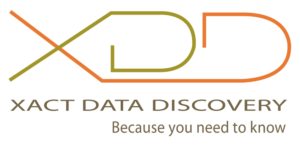AI Progress Update: Artificial Intelligence in Legal Practice
Artificial intelligence tools are multiplying rapidly in the legal technology industry, promising dramatic changes in how common legal tasks are accomplished
by Matthew Verga, JD, Xact Data Discovery
Artificial intelligence (“AI”) has become, of late, a staple of discussion in legal industry publications. Each week seems to bring new product announcements, new panel discussions on its future, or new editorials on its potential for disruption. Despite this ubiquitous hype, a clear definition of what we mean by AI has not emerged, areas of effective application remain narrow, and actual adoption rates are still low. So, what’s all the fuss about, and is it warranted?
In this article, we will attempt to answer that question by providing an overview of what we mean by AI, some recent examples of its applications in legal practice, one area where it is measurably excelling, the burdens of AI training, and the actual rate of AI adoption.
What We Mean by Artificial Intelligence
Far from being a specific, technical term, artificial intelligence just refers to “intelligence exhibited by machines.” Unfortunately, this means that our definition of AI fluctuates over time with our perceptions of intelligence.
